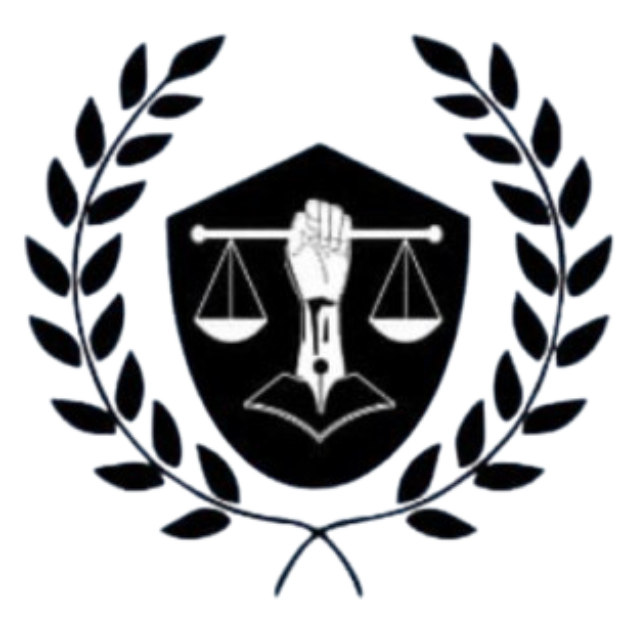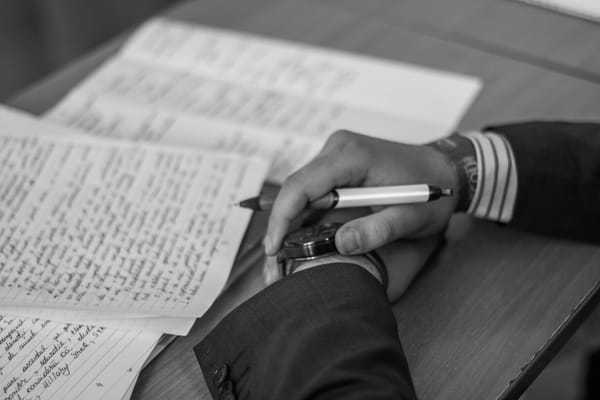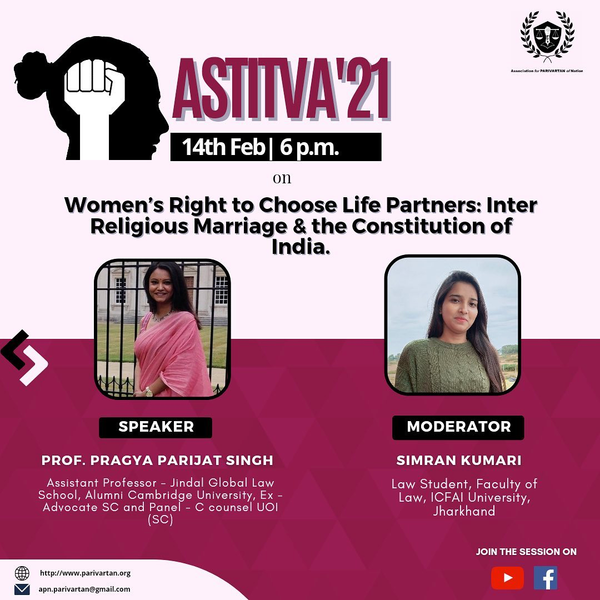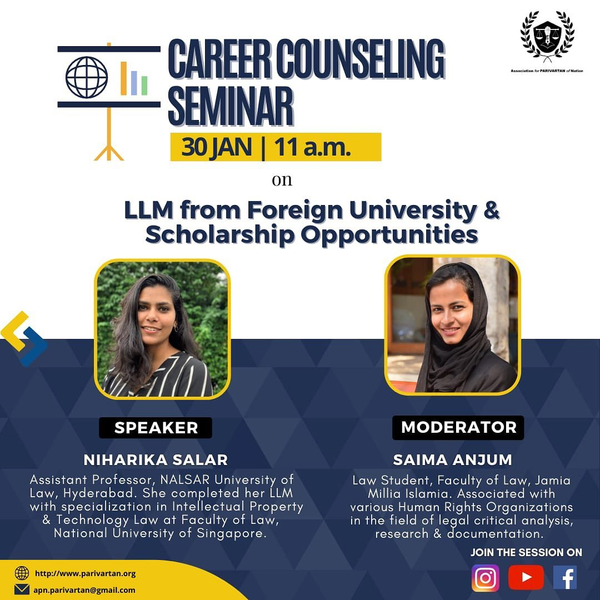E-Baithak- Our preambular promises of brotherhood based on sacrifices of service
On 15 Aug 2020, APNA’s Independence Day E-Baithak on “Preambular Promises” drew 480 participants. Advocate Rajeev Sharma stressed fraternity, equality & Ambedkar’s vision, citing Maneka Gandhi v. Union of India (1978) to highlight rights–duties balance and the Constitution as a living bond.
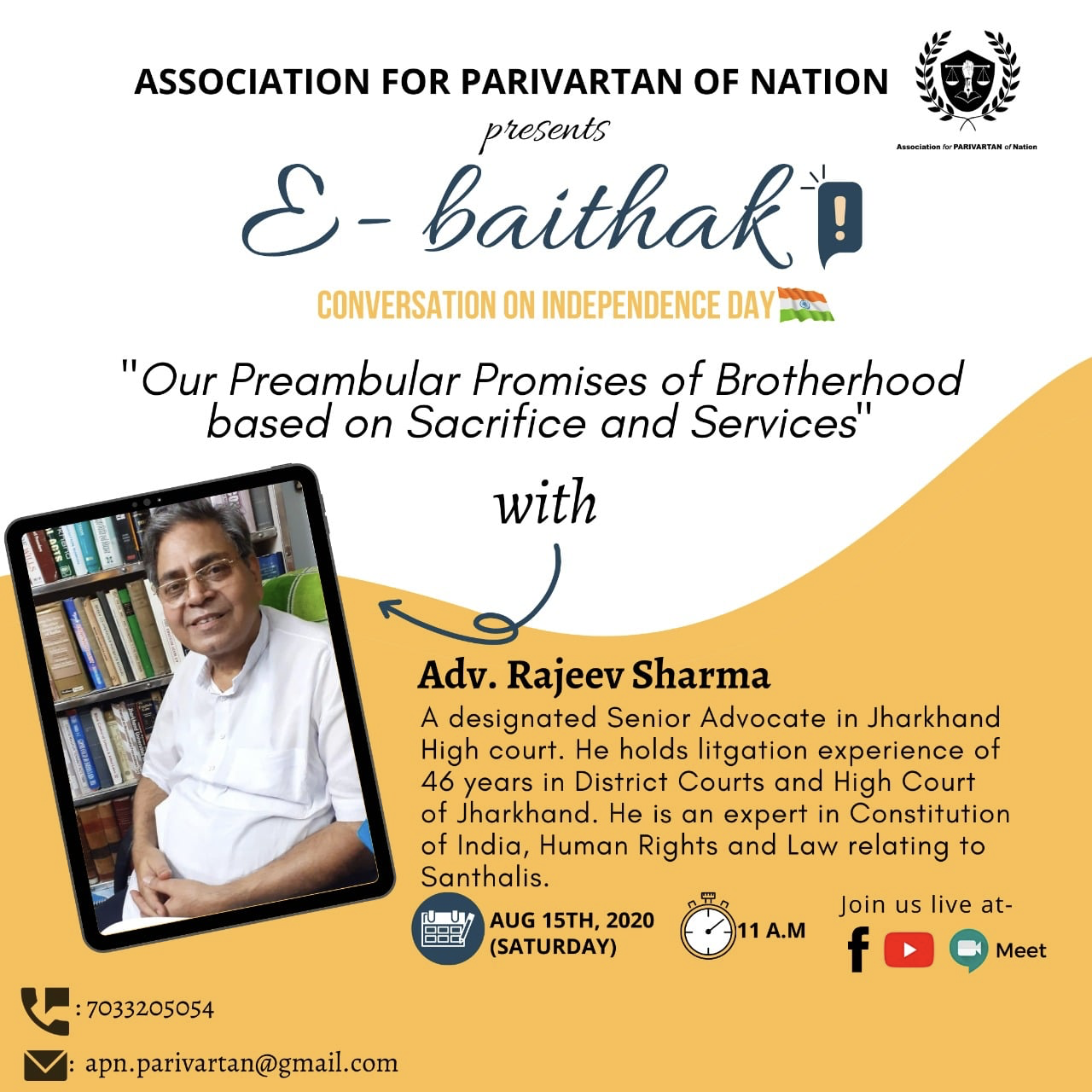
Independence, Sacrifice and the Spirit of the Preamble
On the occasion of Independence Day, 15th August 2020, the Association for Parivartan of Nation organised an E-Baithak on the theme “Our preambular promises of brotherhood based on sacrifices of service.” The event, hosted online through Google Meet, YouTube Live and Facebook Live, witnessed the participation of nearly 480 attendees from diverse walks of life, including students, young professionals, activists and community leaders.
The keynote speaker was Advocate Rajeev Sharma, a senior advocate at the Jharkhand High Court with 46 years of litigation experience in both district and high courts. With expertise in Constitutional Law, Human Rights, and laws concerning the Santhali community, Mr Sharma brought rich insights into the conversation.
He began by revisiting the scepticism expressed by Dr B. R. Ambedkar in his farewell address to the Constituent Assembly. While Ambedkar was instrumental in shaping the Constitution, he was acutely aware of the challenges posed by India’s deeply discriminatory social fabric. Mr Sharma highlighted how Ambedkar believed that caste and religious divisions had not only weakened India internally but had also enabled British colonial rule for centuries.
The discussion placed strong emphasis on the Preamble of the Indian Constitution, which binds every citizen in a shared brotherhood. The speaker reminded the audience that unity and solidarity are not abstract ideals but living responsibilities of both the State and individual citizens. Quoting the landmark Maneka Gandhi v. Union of India (1978) case, he stressed the balance between Fundamental Rights and Duties as essential for ensuring social order and peace. “Our rights,” he noted, “must be exercised with a consciousness of our duties. It is only then that democracy can be both protected and lived.” Participants actively engaged through questions and comments.
“Listening to Advocate Sharma helped me see the Constitution not as a distant text but as a living document. It feels like a call to action for our generation.” — Adv Sonal Tiwary, a lawyer from the Jharkhand High Court, shared during the interaction,
The organisers of the event expressed pride in the turnout and the spirit of engagement. “The E-Baithak was not just about remembering history; it was about reimagining our responsibilities as citizens in 2020 and beyond,” noted one of the coordinators.
In conclusion, Advocate Sharma described the Constitution as a “spiritual document,”one that aspires towards a just and equitable social order. He urged participants to view fraternity and equality not as optional virtues but as indispensable to the democratic fabric of the nation.
